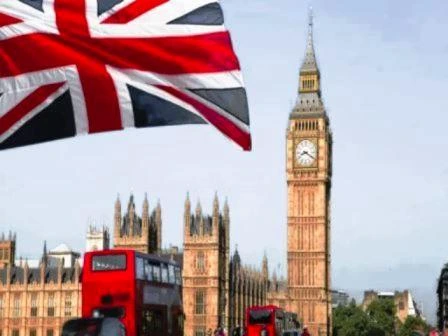The UK government has recently introduced important changes regarding the sponsorship costs for Skilled Worker visas. These new regulations, effective from December 31, 2024, will have significant implications for employers and employees alike, especially for Indian professionals who make up a substantial portion of the UK’s skilled workforce. Here’s a detailed look at the UK rules on sponsorship costs for Skilled Worker visas and how they impact both employers and workers.
What’s Changing in the UK’s Sponsorship Rules for Skilled Worker Visas?
Under the new rules, employers can no longer pass on certain sponsorship-related costs to employees. The cost burden will now fall entirely on the employers, ensuring a fairer system for the workers. Here’s a breakdown of the changes:
| Sponsorship Costs | Who Pays Now? | Previous Rule |
|---|---|---|
| Sponsor Licence Fees | Employers (approx. £2,000) | Employers could recover this cost |
| Certificate of Sponsorship (CoS) Fees | Employers (£239 per worker) | Employers could recover this cost |
| Immigration Skills Charge (ISC) | Employers (Workers cannot pay) | Workers were prohibited from paying this |
The new policy focuses primarily on the Skilled Worker visa route, which allows foreign nationals, including Indian workers, to work in the UK in specialized occupations.
Key Aspects of the New Rules
- Sponsor Licence Fees
Employers will now have to cover the cost of obtaining a sponsor licence, which can cost up to £2,000. This cost applies to applications made after December 31, 2024, and it includes faster processing services. This new rule ensures that employers take full responsibility for the cost of hiring skilled workers. - Certificate of Sponsorship Fees
Every skilled worker needs a Certificate of Sponsorship (CoS), which costs £239 per worker. The burden of this fee, too, has shifted to employers, who must pay this cost for certificates issued after December 31, 2024. - No Change for Immigration Skills Charge (ISC)
The Immigration Skills Charge, which employers were previously prohibited from passing on to workers, remains unchanged. Employers will continue to be responsible for this charge. - Other Costs
While the new rules protect workers from the sponsor licence and CoS fees, employers can still require employees to pay for visa application fees, health surcharges, and service charges related to the worker’s dependents.
Penalties for Non-Compliance: What Happens If Employers Break the Rules?
Employers who fail to comply with these new rules face serious consequences. Penalties for non-compliance may include:
- Loss of Sponsor Licence: Employers could lose their ability to sponsor skilled workers if they fail to follow the new rules.
- Damage to Reputation: A revoked sponsor licence can harm an employer’s reputation and make it more difficult to hire future workers.
- Financial Losses: Loss of business and costs incurred from having to find a new sponsor or hiring new workers.
- Employee Disruptions: Skilled workers may have to find new sponsors, leading to job insecurity and potential displacement.
How Will the UK’s Sponsorship Cost Rules Benefit Indian Workers?
Indian professionals, who make up a significant portion of the UK’s Skilled Worker visa holders, will benefit from these changes. In the year ending March 2024, over 160,000 Indian nationals were granted skilled worker visas, making them the largest group of foreign workers in the UK. The new rules ensure that Indian workers will no longer be burdened with high sponsorship fees, making the immigration process more equitable and less stressful.
These changes are in line with the UK government’s efforts to create a fairer immigration system, particularly for workers coming from countries like India, where demand for skilled workers is high.
Conclusion: A Fairer Future for Skilled Workers in the UK
The UK’s new rules on sponsorship costs for Skilled Worker visas are a positive step forward for both employers and workers. Employers are now fully responsible for the costs of sponsorship, which helps protect employees from financial burden and makes the process fairer. For Indian professionals and other skilled workers, these changes offer much-needed relief, making it easier to live and work in the UK without worrying about high fees.
In the long run, the UK’s Skilled Worker programme aims to provide a transparent, efficient, and fair process that benefits both workers and employers alike. These changes are a step toward creating a more secure and accessible work environment for skilled professionals from around the world.
Popular News Article Related Q&A
Q1: What are the new rules regarding sponsorship costs for Skilled Worker visas in the UK?
Under the new rules, employers are now required to cover sponsor licence fees and Certificate of Sponsorship (CoS) fees for Skilled Worker visa applicants. The new law aims to make the process more fair for workers, particularly those from India.
Q2: Who pays for the sponsor licence and CoS fees under the new UK rules?
Under the updated rules, employers must cover the costs of obtaining a sponsor licence (around £2,000) and CoS fees (£239 per worker). These costs were previously recoverable from the employees.
Q3: Can employees still pay for visa application fees and health surcharges under the new rules?
Yes, employees may still be required to pay for visa application fees, health surcharges, and service charges for dependents. However, employers must cover the sponsor licence and CoS fees.
Q4: How will these changes benefit Indian workers?
Indian workers, who form a significant part of the UK’s skilled workforce, will benefit from the changes as they will no longer have to bear the costs of sponsorship fees, which makes the immigration process more affordable and fair.
Q5: What penalties do employers face for not following the new rules?
Employers who do not adhere to the new rules may face serious penalties, including the loss of their sponsor licence, damage to their reputation, and the possibility of financial losses.



